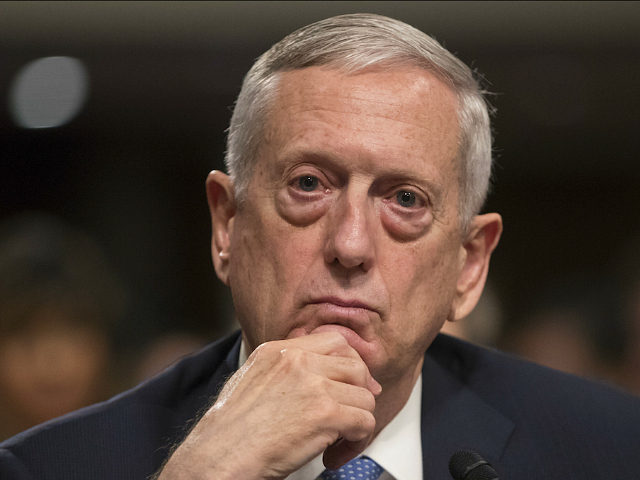A bipartisan group of House lawmakers have sent a letter urging President Donald Trump to honor a request by Secretary of Defense James Mattis to exempt Iraqis who served as “interpreters, aides and other allies who risked their lives alongside U.S. personnel in Iraq” from the recent national security executive order.
The January 30 letter reads:
With regard to your executive order to temporarily halt immigration originating from specified countries, we want to register our strong support for the request of Secretary of Defense James Mattis to exempt military interpreters, aides and other allies who risked their lives alongside U.S. personnel in Iraq.
These allies risked their own lives, as well as the well-being of their families, to advance America’s security interests in a region where their skillsets and willingness to confront extremism have been invaluable to mission success.
Republican Reps. Duncan Hunter of California and Adam Kinzinger of Illinois, both U.S. military veterans who served in Iraq and Afghanistan, sent the letter to the Commander-in-Chief on Monday.
“We made a promise to the men and women who served alongside us on the battlefield, and we must uphold that promise to leave no man behind,” declared the two Republican lawmakers in a joint statement. “We urge the President to honor Secretary Mattis’ requests, and stand up for those who stood by our military and American personnel. For the safety of these courageous individuals and their families, and in the interest of our national security, it’s critical that we make this exception and do so swiftly.”
Asked whether the exception Secretary Mattis requested should be extended to the immediate family of Iraqis who served alongside the U.S. military, Joe Kasper, Rep. Hunter’s chief of staff, told Breitbart News, “Yes, but if determined appropriate. Doesn’t necessarily apply to all but if there’s a necessity to extend protections to an immediate family, then it needs to be looked at.”
In 2008, Congress established the Iraqi Special Immigrant Visa (SIV) program specifically for individuals who worked with the U.S. military as translators or interpreters in Iraq for at least 12 months and are able to obtain a favorable written recommendation from a General or Flag Officer in the chain of command of the unit they supported.
Addressing special visa recipients, the U.S. Department of State, charged with issuing visas to foreign nationals, notes, “Your spouse, as well as unmarried children younger than 21, may be granted SIVs, and may travel with you or may follow to join you after you have been admitted to the United States.”
On Friday, President Trump signed an executive directive to ban United States entry to individuals traveling on passports from Iraq, Syria, Sudan, Iran, Somalia, Libya, and Yemen for at least 90 days in an effort to review and establish “standards to prevent terrorist or criminal infiltration by foreign nationals,” explains the U.S. Department of Homeland Security (DHS).
The executive order also suspends the Refugee Admissions Program for at least 120 days while DHS and interagency partners strengthen the vetting process.
In the letter to President Trump, the lawmakers note:
We are concerned that, with specific application to individuals who worked with the U.S. Government on the ground, certain immigrants deserving prompt consideration are likely to be overlooked. We encourage you to make special consideration in the review process for these individuals, who are certain to face threats to their own lives as part of the broader pause in refugee and immigrant admissions.
It is important that a special exception is made for the consideration of individuals who directly supported American personnel overseas.
Besides Hunter and Kinzinger, other House lawmakers who signed the letter include Democratic Reps. Steve Stivers of Ohio, Earl Blumenauer of Pennsylvania, Seth Moulton of Massachusetts, and Pete Welch of Vermont.

COMMENTS
Please let us know if you're having issues with commenting.